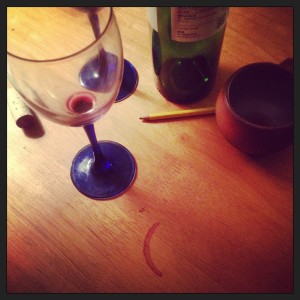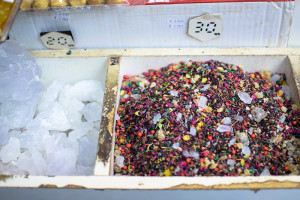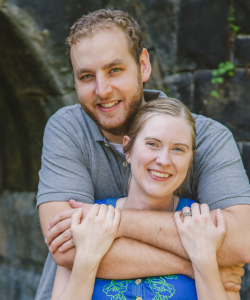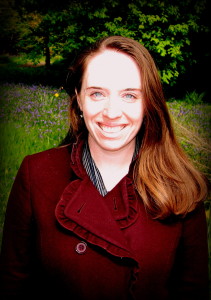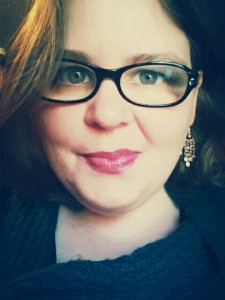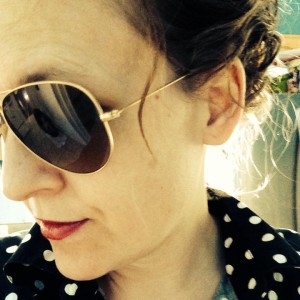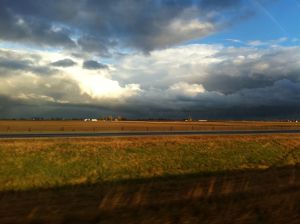I remember the emptiness of the moving truck after I backed it up to our garage in northern Virginia. I parked that behemoth, the largest truck they had, and walked quietly around to the back. I lifted the gate and pulled out the ramp. My two oldest kids ran up and down the clanging metal, jumping around in the back and leaping from the wheel wells, shouting their names and marveling at the echo.
I remember that echo.
The emptiness was everywhere. The trees were shedding their leaves. The immaculate houses looked down on us disapprovingly, like a row of unhappy teachers,, their shapes dim against the slate gray sky. I felt like those beautiful houses (or perhaps their occupants) held us in contempt – we had not been able to make it there. We were not good enough.
Inside the house, rooms were either empty or had stacks of boxes huddled in their centers. I walked through the rooms to make sure we hadn’t forgotten anything. There, the third-floor room we brought Sam home to after he was born with that perfect knot in his umbilical cord. There, the room I painted pink for the girls. There, the kitchen with its marble countertops, the countertops we had leaned against with friends on late summer nights, the countertops that held me up when I told Maile the business wouldn’t take us through the winter. We were drowning in debt.
We didn’t breathe so much as sigh. I felt like a failure, unable to make enough money to keep my family in the place that we loved. I felt lost and fragile, as if one more tiny bit of bad news would be enough to send me over the edge, into the emptiness of midair.
That emptiness was everywhere. Including inside me.
* * * * *
My wife later told me a story about those last days in Virginia. Last nights, actually. She woke up after midnight to the sound of nothing. Our children were all sleeping, the neighborhood outside was silent. There was a large window by the bed that looked out over our tiny back yard and into the tiny back yards of the houses behind ours. Street lights threw dim shadows on to the ceiling, drowned out the stars.
My wife woke to a ball of anxiety about what was happening, about our business going under and all the debt weighing us down, about us having to leave a place we loved and move our family of six into my parents’ basement 150 miles away. She slid out of bed, down onto the floor, and put her face in the plush carpet.
How can this be happening? God, how can you let this happen?
She heard the closest thing she’s ever heard to an audible voice from heaven, and it echoed in her mind, one phrase reverberating and growing.
This is a gift.
When the phrase faded off into the darkness, disappearing beneath the whirring of the ceiling fan, my wife shook her head.
Well, she muttered, it’s a pretty shitty gift.
She stood up off the floor, crawled back into bed, and went to sleep.
* * * * *
I can’t decide which is easier, packing up an entire house and moving truck on your own, or having your entire community come out and help you do it. The first is physically difficult, nearly impossible. The latter is emotionally difficult, nearly impossible.
We walked beside friends carrying our boxes, our furniture. We laughed and joked about how only the best of friends help you move because everyone hates losing friends and everyone hates moving. We let one of the guys take over the truck packing duties, and he wielded his engineering skills like a champion-Tetris player. The door to the behemoth barely shut, but everything was in. That slamming sound was it. The latch clicked. The lock connected. Our four years in Virginia were nothing more than a closed door.
We hugged them, perhaps the closest friends we had ever made, and we promised to stay in touch, though we knew it was unlikely. They walked off into the night, one family at a time, and we went back inside the empty shell.
I can’t remember if we spent that night in the house, slept on the floor, and left the following evening, or if we drove off after our friends left. It seems like something one should remember.
What I do remember is making the three hour drive to our new locale through the pouring rain. I led the way, alone in the truck, my wife and our four kids in the minivan behind me. I remember the way the headlights of oncoming cars streaked down the windshield.
That was one of those drives I’ll never forget, when my thoughts weren’t deep inside me, but out in the open, like residue on my skin. There was a tangible sense of loss, as though someone had died. One phrase kept circling back through my mind over and over again with the rhythm of the windshield wipers.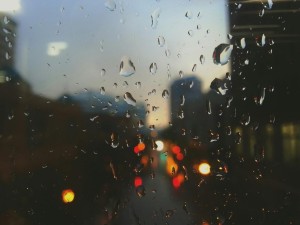
Now what?
Now what?
Now what?
I remember arriving at my parent’s house – it was quiet there. They were away. We left our stuff in the truck and carried the sleeping kids to their new beds in the basement. Our new home. Our new life.
Our “gift.”
***
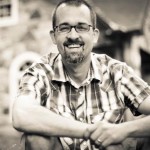 Shawn grew up in a ramshackle farmhouse with one of those enormous porches where he would sit and read far too much for a boy his age. Across the street was everything he could ever need to live an adventurous childhood: an empty church, a large cemetery, a winding creek. Every book he read during that time is set, in his mind, somewhere in that square mile.
Shawn grew up in a ramshackle farmhouse with one of those enormous porches where he would sit and read far too much for a boy his age. Across the street was everything he could ever need to live an adventurous childhood: an empty church, a large cemetery, a winding creek. Every book he read during that time is set, in his mind, somewhere in that square mile.
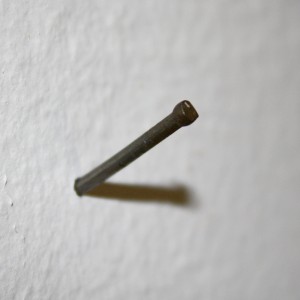 rtunity opened up, I would move.
rtunity opened up, I would move.



